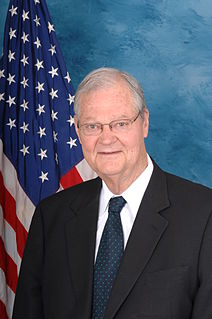A Quote by Kit Bond
At a time when the insurgents are saying that time is working against them, my Democratic colleagues are introducing a measure to set a timetable for withdrawal in Iraq that will undercut the momentum that the insurgents themselves say we have built in Iraq.
Related Quotes
Democracy in Iraq will be an example that the Arab population will look to with great interest. And some Arab governments are concerned about democracy in Iraq, not because Iraq will be an aggressive state against them, but rather by the example that will be set by a successful federal democratic state in Iraq.
I believe that we will succeed in Iraq, because, one, the Iraqis want to live in a free society. And, two, that the Iraqis want to take the fight to the enemy. And people want me to put a timetable on things; that's a huge mistake. Putting a timetable on this - on our stay there in Iraq simply emboldens the enemy and discourages our friends.
In many respects, Afghanistan represents a more difficult problem set. It does not have a number of the blessings that Iraq has in terms of the oil, gas, land of two rivers, the human capital that Iraq built up over the years, the muscle memory of a strong government - albeit one that was corrupted over time.
In Iraq, State Department civilians and U.S. soldiers have been operating in the same location in an active war zone. While the troops have been facing insurgents, the State Department civilians have been working to rebuild institutions and infrastructure. Blackwater's role in this war evolved from this unprecedented dynamic.































